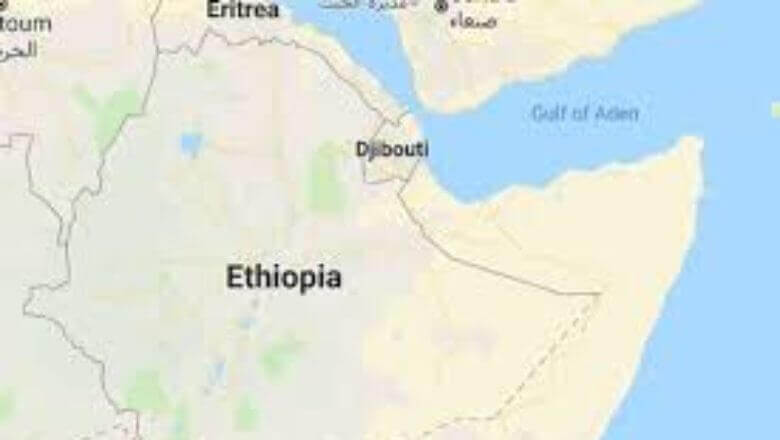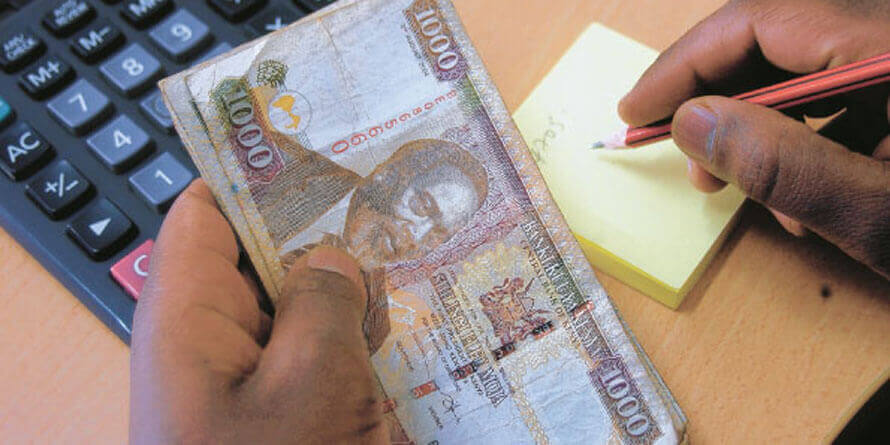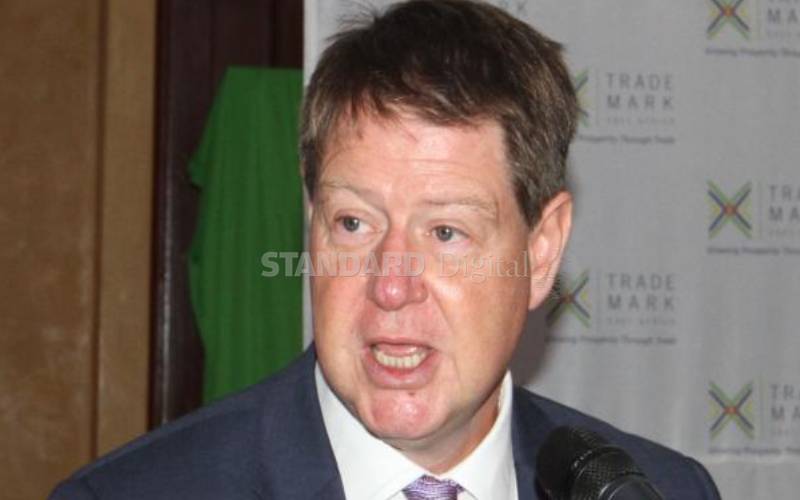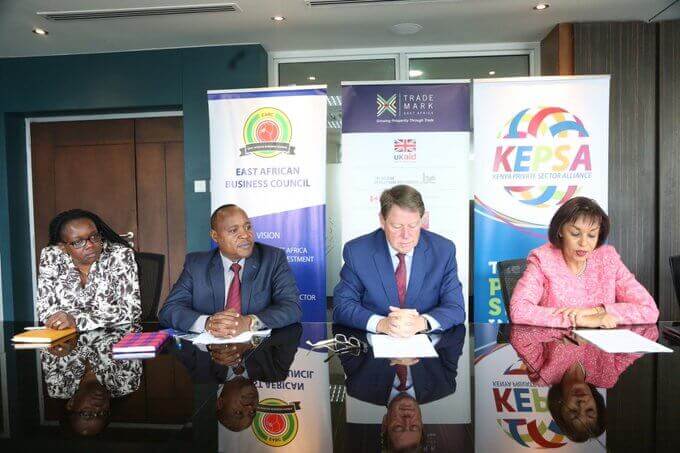The East African Business Council (EABC) on Tuesday signed a US$ 3.2 million financing agreement with TradeMark Africa (TMA) for support in implementing a three-year programme focused on the simplification and harmonization of trade procedures in the region. The partnership will support EABC’s advocacy efforts of improving coordination, reporting and resolution of non- tariff barriers along the corridors; harmonization and adoption of East African standards or sanitary and phytosanitary (SPS) measures; improve adoption and harmonization of Customs and Domestic Tax-related policies and trade facilitation in the region. “We will coordinate, set the agenda and facilitate evidence-based research on public-private dialogues to reducing barriers to trade in the EAC region,” said Peter Mathuki, the EABC Chief Executive Officer. “We appreciate this partnership with TradeMark Africa as it will support EABC to evaluate and monitor EAC policies to ensure they work for businesses at ground level and create momentum to accelerate the needed policy reforms for the business and investment climate in the EAC.” As noted, public-private dialogue plays a crucial role in addressing constraints, providing short-term stimulus with long-term impact and contributing to economic growth and poverty reduction. The project will enhance advocacy and dialogue on transport and logistics, trade facilitation, customs and tax, standards, and NTBs in a bid to increase trade and investments in the region. The programme also extends beyond the EAC and incorporates the COMESA, COMESA-EAC-SADC Tripartite Free Trade Area (TFTA) and the Africa Continental Free Trade Area (AfCFTA). “Inadequate trading regimes restrictions on the export of...
Regional business community gets $3.2m funding for trade facilitation
Posted on: August 28, 2019
Posted on: August 28, 2019




















